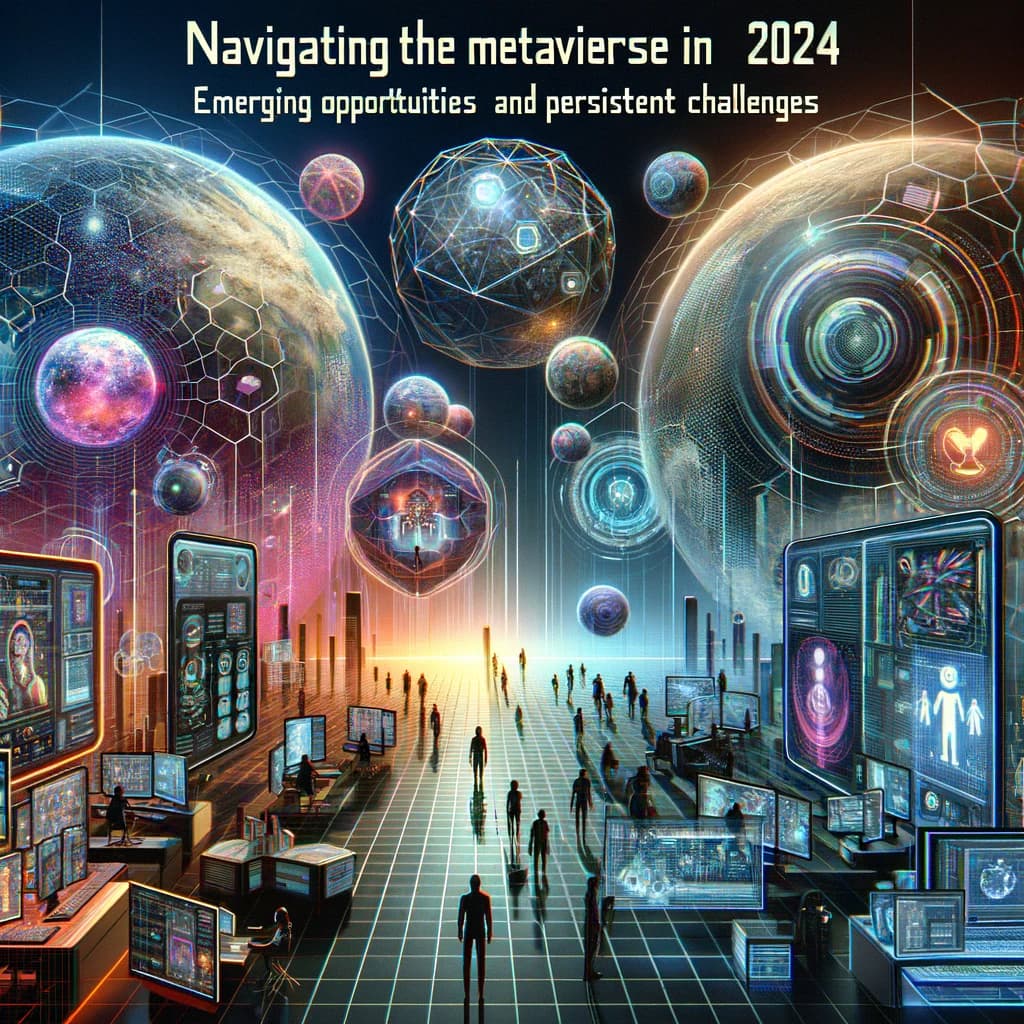
Navigating the Metaverse in 2024: Emerging Opportunities and Persistent Challenges
Introduction
The idea of the Metaverse has transitioned from being a fantasy in science fiction to becoming a concrete reality, fundamentally changing how we engage, work, and have fun in virtual environments. As we delve into 2024, understanding and navigating this immersive digital realm is more crucial than ever.
“In simplest terms, the metaverse is the internet, but in 3D.” ( Neal Stephenson, Author. )
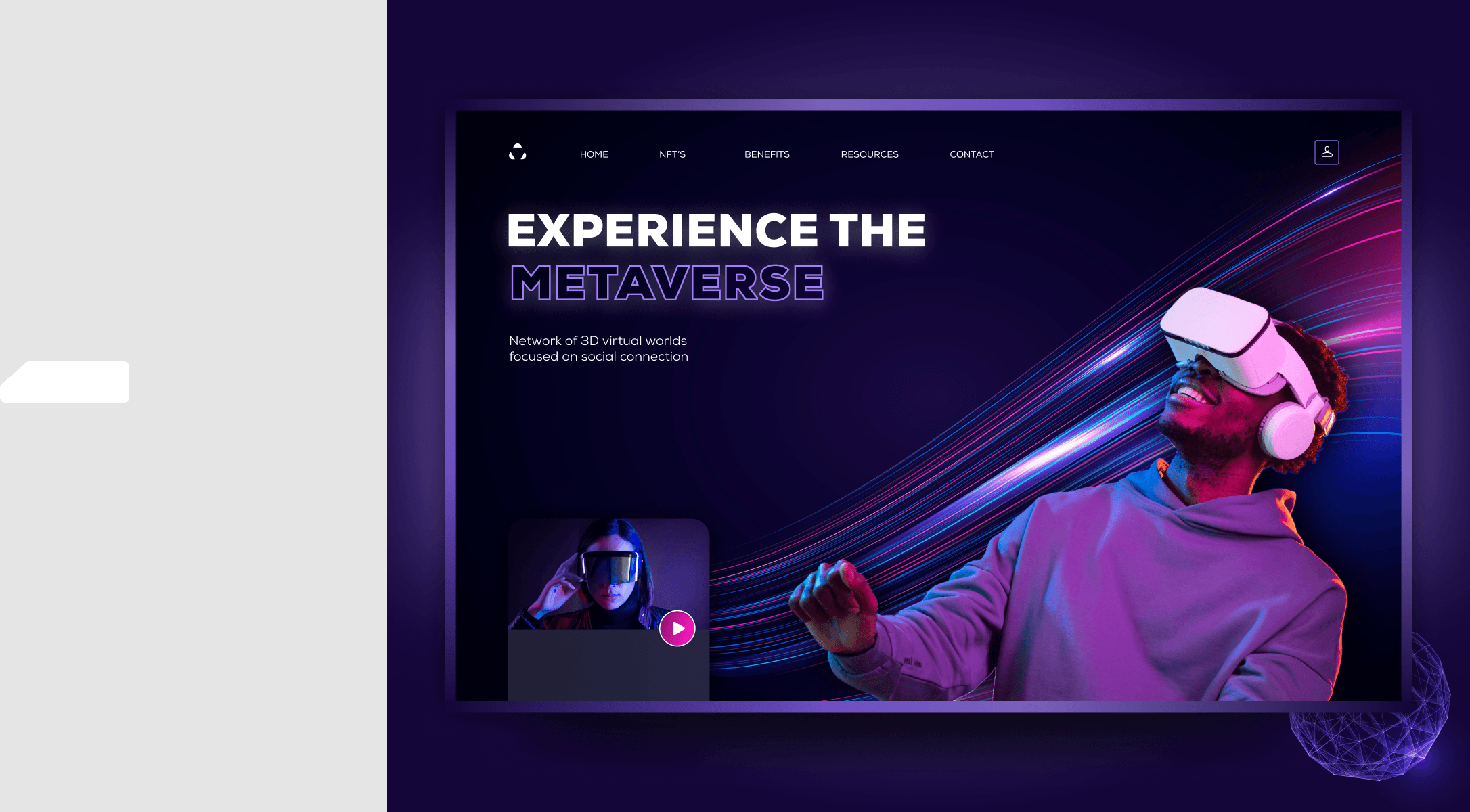
Definition of the Metaverse
The Metaverse refers to a collective virtual space created by the convergence of digital environments, augmented reality (AR), virtual reality (VR), and the internet. It offers users a persistent, immersive experience that blurs the line between physical and digital realities.
Importance of Navigating the Metaverse in 2024
In 2024, the Metaverse is poised to revolutionize industries, redefine social interactions, and unlock new economic opportunities. Navigating this landscape effectively is essential for individuals and businesses alike to stay relevant and thrive in the digital age.
The total market size for potential consumer spending in the United States across different segments within the Metaverse as measured in billions of U.S. dollars.
Market | Billion U.S. dollars |
|---|---|
Real Estate | 2,516 |
Motor vehicles and parts | 702 |
Home related | 697 |
Apparel | 594 |
Education | 252 |
Cosmetics | 166 |
Overview of Emerging Opportunities and Persistent Challenges
The Metaverse presents a myriad of opportunities, from economic growth to enhanced social interactions. However, it also comes with persistent challenges such as privacy concerns and regulatory complexities that must be addressed for its sustainable development.
Evolution of the Metaverse
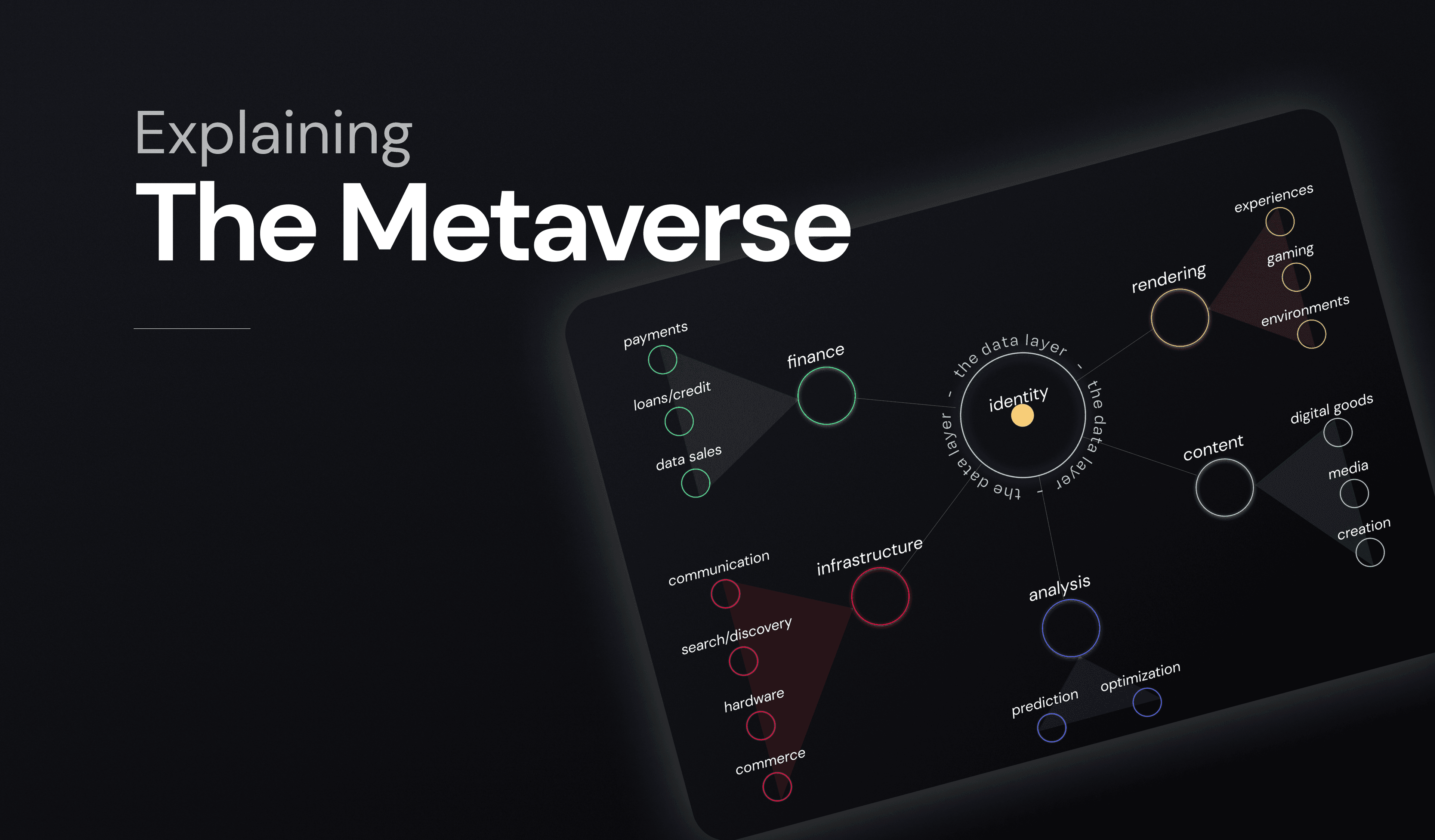
Historical Background
The concept of the Metaverse traces back to science fiction novels like Neal Stephenson's "Snow Crash" in the early 1990s. Over the years, technological advancements have brought this concept closer to reality, culminating in today's interconnected digital ecosystems.
Technological Advancements Leading to the Current State
Advancements in AR, VR, artificial intelligence (AI), and blockchain technology have paved the way for the development of immersive virtual environments within the Metaverse. These technologies have made it possible to create lifelike digital experiences with unprecedented levels of interactivity.
Key Players and Platforms in the Metaverse Landscape
Tech giants like Meta (formerly Facebook), Epic Games, and Microsoft are at the forefront of shaping the Metaverse landscape. Their platforms, such as Facebook Horizon, Fortnite, and Microsoft Mesh, offer users immersive experiences and serve as hubs for social interactions and commerce.
Emerging Opportunities
Economic Potential: Growth of Virtual Economies and Digital Assets
The Metaverse presents a fertile ground for the growth of virtual economies, where users can buy, sell, and trade digital assets such as virtual real estate, digital art, and virtual currencies. This has the potential to create new revenue streams and business models for entrepreneurs and content creators.
Social Interactions: Community Building and Immersive Experiences
In the Metaverse, users can connect with others from around the world in immersive virtual environments. Whether it's attending virtual concerts, exploring virtual worlds, or collaborating on creative projects, the Metaverse fosters new forms of social interaction and community building.
"The metaverse is the world's first truly global platform for digital expression, commerce, and communication."
Education and Training: Virtual Classrooms and Skill Development
Virtual classrooms and training simulations within the Metaverse offer new opportunities for education and skill development. From immersive language learning to hands-on vocational training, the Metaverse enables experiential learning experiences that transcend physical limitations.
Persistent Challenges
Privacy and Security Concerns: Data Protection and Identity Theft
Privacy and security remain significant concerns in the Metaverse, with users entrusting sensitive personal information to digital platforms. Data protection measures and robust identity verification systems are essential to safeguarding user privacy and preventing identity theft.
Digital Divide: Access and Inclusivity Issues
The digital divide persists as a barrier to equitable access to the Metaverse, with disparities in internet connectivity, device ownership, and digital literacy. Bridging this gap requires concerted efforts to ensure that all individuals have the opportunity to participate in and benefit from the Metaverse.
Legal and Regulatory Complexities: Intellectual Property Rights and Governance
Navigating the legal and regulatory landscape of the Metaverse poses challenges, particularly concerning intellectual property rights, taxation, and governance. Clear regulations and frameworks are needed to address these complexities and ensure a fair and transparent digital environment.
Strategies for Navigating the Metaverse
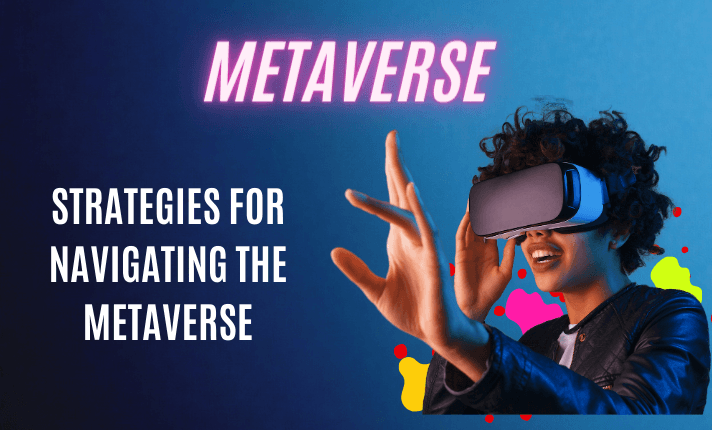
Adoption of Emerging Technologies: VR, AR, Blockchain
Embracing emerging technologies such as VR, AR, and blockchain is essential for navigating the Metaverse effectively. These technologies serve as building blocks for creating immersive experiences, secure transactions, and decentralized governance within the Metaverse.
Collaborative Approaches: Industry Partnerships and Cross-Sector Initiatives
Collaboration between industry stakeholders, government agencies, and civil society is key to addressing the challenges of the Metaverse. By fostering partnerships and sharing best practices, stakeholders can collectively shape a more inclusive, secure, and sustainable digital future.
Advocacy for Responsible Development: Ethical Guidelines and User Rights Protection
Advocating for responsible development practices and ethical guidelines is crucial for ensuring that the Metaverse prioritizes user safety, privacy, and well-being. Stakeholders can build trust and foster a thriving digital ecosystem by promoting transparency, accountability, and user rights protection.
Case Studies
Successful Examples of Metaverse Integration
Companies like Decentraland, Roblox, and Axie Infinity have successfully integrated Metaverse elements into their platforms, creating vibrant virtual communities and economies. Their experiences offer valuable insights into effective Metaverse strategies and best practices.
Lessons Learned from Past Failures and Setbacks
However, the road to Metaverse success is not without challenges, as evidenced by past failures and setbacks. Learning from these experiences, such as issues of scalability, user adoption, and governance, is essential for refining strategies and mitigating risks in future Metaverse endeavors.
Future Outlook for Navigating the Metaverse
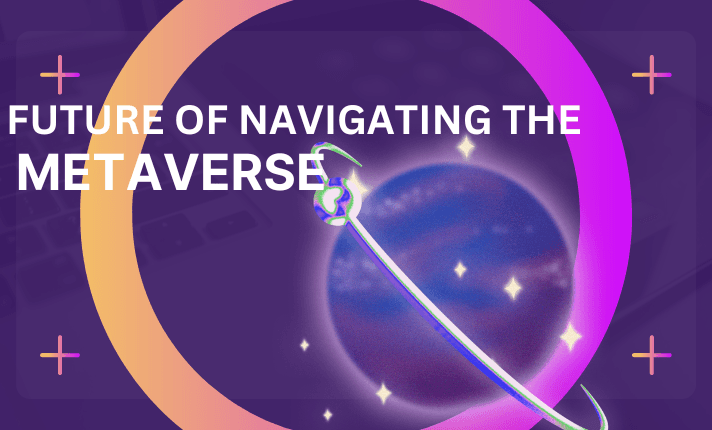
The Metaverse holds immense promise for innovation, creativity, and connectivity as we look to the future. By addressing persistent challenges and embracing collaborative, responsible development practices, we can unlock its full potential for the benefit of society.
Call to Action for Stakeholders to Address Challenges and Seize Opportunities
Stakeholders across sectors must come together to address the challenges of the Metaverse and seize its opportunities. By working collaboratively and advocating for responsible development, we can shape a Metaverse that is inclusive, equitable, and sustainable for all.
Conclusion
The Metaverse represents a transformative force reshaping how we live, work, and play in digital spaces. Understanding its opportunities and challenges is essential for navigating this digital frontier effectively.